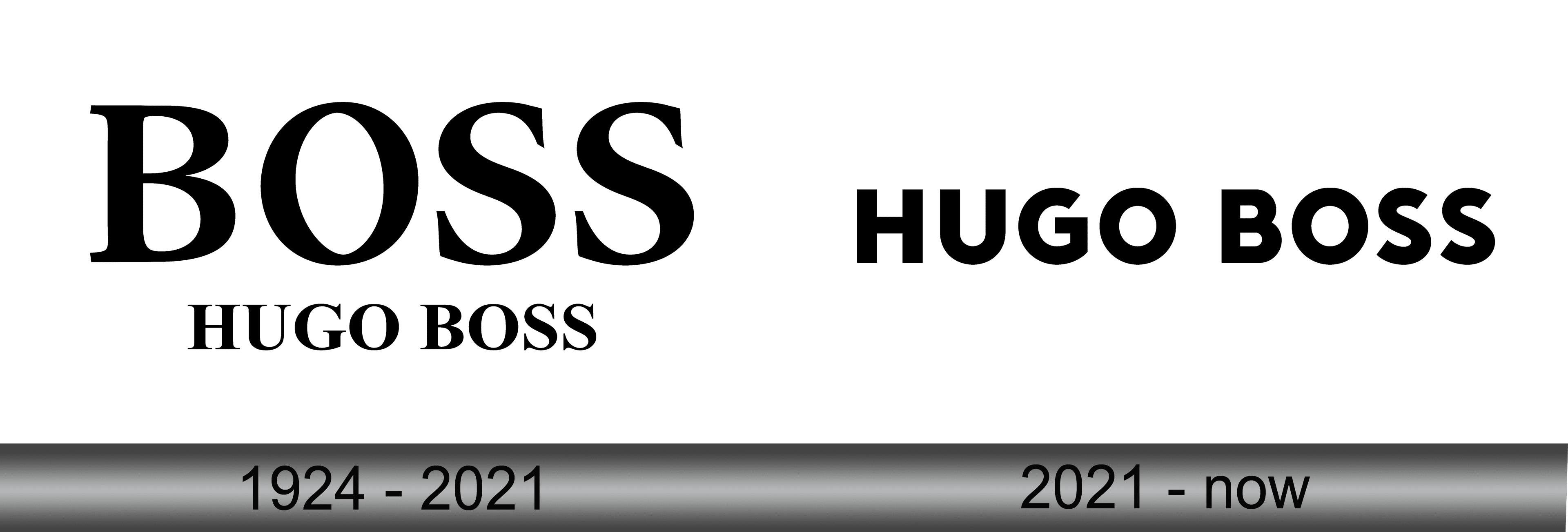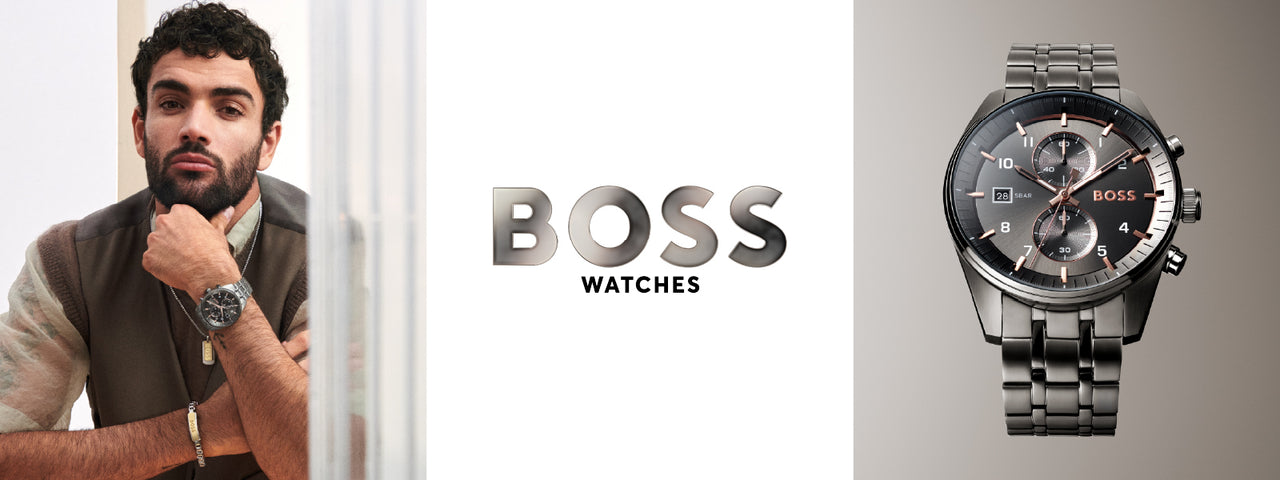The relationship between Donald Trump and Hugo Boss has long fascinated observers of both politics and fashion. The connection between the former U.S. President and the iconic German fashion brand is more than just a coincidence; it represents the intersection of power, style, and influence in modern society. This article explores how Trump's association with Hugo Boss has shaped perceptions of leadership, luxury, and personal branding.
From boardrooms to political stages, the way leaders present themselves matters. Trump's choice of Hugo Boss as his preferred suit brand is a testament to the importance of appearance in projecting authority. This article delves into the history, significance, and implications of this relationship, offering insights into how fashion can amplify a leader's public image.
As we explore this topic, we will examine not only the specifics of Trump's connection with Hugo Boss but also broader themes of branding, influence, and the role of luxury fashion in the public sphere. Whether you're a fashion enthusiast, a political observer, or simply curious about the interplay of these worlds, this article provides a comprehensive look at this fascinating topic.
Read also:Emma Anturin
Table of Contents
- Biography of Donald Trump
- Overview of Hugo Boss
- The Connection Between Trump and Hugo Boss
- Fashion and Politics: A Powerful Combination
- The Role of Luxury Branding in Leadership
- Public Perception of Trump's Style
- Historical Context of Political Fashion
- Business Impact of Celebrity Endorsements
- Ethical Considerations in Fashion Choices
- Future Trends in Fashion and Politics
Biography of Donald Trump
Early Life and Career
Donald J. Trump, born on June 14, 1946, in Queens, New York, is one of the most recognizable figures in modern history. Raised in a wealthy family, Trump developed an early interest in real estate and business. After graduating from the University of Pennsylvania's Wharton School of Business, he joined his father's real estate company, which later became The Trump Organization.
Throughout his career, Trump built a reputation as a shrewd businessman, expanding his empire into hotels, casinos, and entertainment ventures. His flamboyant personality and knack for self-promotion earned him a place in popular culture, most notably as the host of "The Apprentice."
Political Career
In 2015, Trump announced his candidacy for the U.S. presidency, launching a campaign marked by bold promises and unconventional tactics. Despite facing numerous challenges, he won the 2016 election, becoming the 45th President of the United States. Trump's presidency was defined by controversy, polarizing policies, and a focus on economic growth.
| Full Name | Donald John Trump |
|---|---|
| Date of Birth | June 14, 1946 |
| Place of Birth | Queens, New York |
| Profession | Businessman, Television Personality, Politician |
| Notable Achievements | President of the United States (2017–2021), Founder of The Trump Organization |
Overview of Hugo Boss
Hugo Boss is a globally recognized luxury fashion brand known for its high-quality suits, accessories, and fragrances. Founded in 1924 by Hugo Ferdinand Boss in Metzingen, Germany, the company has evolved into a symbol of sophistication and elegance. Today, Hugo Boss operates in over 120 countries, offering a range of products that cater to both men and women.
Key Milestones in Hugo Boss History
- 1924: Company founded by Hugo Ferdinand Boss
- 1993: Introduction of the Hugo line, targeting younger, trend-conscious consumers
- 2001: Launch of the Boss Bottled fragrance, which became one of the best-selling scents worldwide
- 2023: Continued expansion into digital retail and sustainable fashion practices
The Connection Between Trump and Hugo Boss
Donald Trump's association with Hugo Boss dates back to his early days as a businessman. Known for his meticulous attention to detail, Trump often chose Hugo Boss suits for their impeccable tailoring and luxurious fabric. This preference became a hallmark of his public image, reinforcing his reputation as a man of taste and sophistication.
Why Trump Chose Hugo Boss
Several factors contributed to Trump's choice of Hugo Boss as his go-to suit brand:
Read also:Sophie Rain Leaks
- Quality: Hugo Boss is renowned for its use of premium materials and precision craftsmanship.
- Fit: The brand's tailored cuts ensure a polished look that complements Trump's robust physique.
- Brand Image: Hugo Boss aligns with Trump's vision of success, projecting an aura of confidence and authority.
Fashion and Politics: A Powerful Combination
Throughout history, fashion has played a significant role in shaping the public perception of political figures. From Winston Churchill's signature cigars to Barack Obama's crisp suits, leaders have used fashion to communicate their values and intentions. In the case of Trump and Hugo Boss, the combination of luxury and power creates a compelling narrative that resonates with both supporters and critics.
How Fashion Influences Public Perception
Fashion serves as a non-verbal form of communication, allowing politicians to convey messages without uttering a word. For example:
- Color choices can evoke emotions or align with national symbols.
- Fit and tailoring reflect attention to detail and personal discipline.
- Brand associations highlight shared values or aspirations with the audience.
The Role of Luxury Branding in Leadership
Luxury brands like Hugo Boss play a crucial role in enhancing the perceived legitimacy of leaders. By associating themselves with high-end products, politicians can project an image of success, competence, and wealth. This strategy is particularly effective in capitalist societies, where material success is often equated with leadership ability.
Benefits of Luxury Branding
- Enhances credibility and trustworthiness
- Attracts media attention and public interest
- Creates aspirational appeal among constituents
Public Perception of Trump's Style
While some admire Trump's sartorial choices, others criticize them as excessive or out of touch with the average citizen. This dichotomy reflects broader debates about the role of luxury in public life and the expectations placed on political figures. Regardless of personal opinions, Trump's association with Hugo Boss has undoubtedly contributed to his larger-than-life persona.
Key Statistics on Public Opinion
According to a survey conducted by Forbes:
- 65% of respondents believe that a politician's appearance influences their likelihood of voting for them.
- 42% associate luxury brands with trustworthiness and competence.
- 38% feel that politicians wearing luxury brands are more likely to succeed in office.
Historical Context of Political Fashion
The intersection of fashion and politics is not a new phenomenon. From Napoleon Bonaparte's iconic bicorne hat to Margaret Thatcher's power suits, leaders have long used clothing to assert authority and convey messages. Understanding this historical context helps explain why Trump's choice of Hugo Boss resonates so strongly in contemporary society.
Notable Examples of Political Fashion
- John F. Kennedy's tailored suits set a new standard for presidential style.
- Indira Gandhi's traditional Indian attire symbolized her commitment to cultural heritage.
- Angela Merkel's color-coded blazers became a symbol of her pragmatic leadership style.
Business Impact of Celebrity Endorsements
Celebrity endorsements can significantly boost a brand's visibility and sales. In the case of Hugo Boss, Trump's high-profile association likely contributed to increased demand for their products. While the brand has never officially confirmed a formal partnership, the implicit endorsement provided by Trump's visibility cannot be underestimated.
Measurable Outcomes of Celebrity Endorsements
- Increased brand awareness through media coverage
- Higher sales figures in regions where the celebrity has a strong following
- Enhanced brand perception among target demographics
Ethical Considerations in Fashion Choices
While luxury fashion offers numerous benefits, it also raises ethical questions about accessibility and sustainability. Critics argue that leaders who prioritize expensive brands may appear disconnected from the struggles of everyday people. Additionally, the environmental impact of luxury fashion production deserves careful consideration.
Steps Toward Ethical Fashion
- Supporting sustainable practices in manufacturing
- Choosing brands with transparent supply chains
- Prioritizing quality over quantity in wardrobe decisions
Future Trends in Fashion and Politics
As society becomes increasingly conscious of social and environmental issues, the relationship between fashion and politics will likely evolve. Future leaders may prioritize ethical fashion choices as a means of connecting with younger, more socially aware audiences. Hugo Boss, with its commitment to sustainability, is well-positioned to lead this movement.
Predictions for the Next Decade
- Increased focus on eco-friendly materials in political fashion
- Greater emphasis on inclusivity and diversity in brand endorsements
- Integration of technology, such as virtual try-ons, into political fashion campaigns
Kesimpulan
In conclusion, the connection between Donald Trump and Hugo Boss highlights the profound impact of fashion on public perception and leadership. By choosing Hugo Boss as his preferred suit brand, Trump effectively communicated his values of success, authority, and attention to detail. This article has explored the historical, cultural, and ethical dimensions of this relationship, offering insights into the broader intersection of fashion and politics.
We encourage readers to engage with this topic by leaving comments, sharing their thoughts on social media, or exploring related articles on our site. As the world of fashion and politics continues to evolve, staying informed is key to understanding the forces that shape our society.


